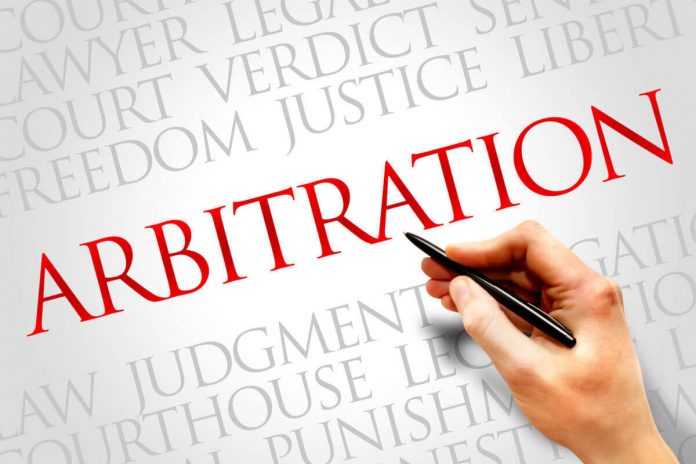This article has been written by Aanya Kameshwar pursuing the Certificate Course in Arbitration: Strategy, Procedure and Drafting from LawSikho.
Table of Contents
Introduction
The modification of arbitral awards has been a subject of immense judicial scrutiny by Indian courts. If we read Section 34 of the Arbitration and Conciliation Act, 1996 (“The Act”), it stipulates that the power of the courts is limited to setting aside the arbitral awards, strictly to the specific grounds provided in sub-section (2) of the Act. The Supreme Court examined the scope of Section 34 of the Act and held that it provides only for setting aside awards on very limited grounds and no power to modify an arbitral award, the apex court can only set aside or remand the matter under the circumstances mentioned in Section 34 of the Act.
Salient features of Section 34
- Section 34 provides for the limited intervention of the Court for setting aside the arbitral award only in certain cases mentioned in sub-section (2).
2. Sub-section (2) of Section 34 lays down two approaches through which an arbitral award may be set aside by the Court:
(i) A party has to prove certain situations mentioned in clause (a);
(ii) When the court finds that the subject matter is nonarbitrable or the award is in conflict with the public policy of India.
3. After the 2015 amendment, the award is in conflict with public policy means:
(i) When the award was induced or affected by fraud or corruption;
(ii) When the award violates the fundamental policy of Indian law; or
(iii) When the award is in conflict with morality and justice.
4. Setting aside an award due to patent illegality was introduced by the 2015 amendment under sub-section (2A), but only for domestic arbitration.
5. Sub-section (3) provides a limitation period of 3 months for filing the application for setting aside the award.
6. Court can remit the award to the arbitral tribunal under subsection 34(4) to cure defects.
7. Sub-section (5) is a condition precedent to the filing of a proper application under section 34.
8. Sub-section (6) is a directory provision to achieve speedy disposal of the application under Section 34 expeditiously within one year.
Certain relevant judgments highlighting this issue
- The Supreme Court laid down a significant judgment on 20th of July, 2021, in The Project Director, National Highways Authority of India v. M. Hakeem & Anr., on the scope of power of a court hearing a challenge to an arbitral award under Section 34 of the Arbitration and Conciliation Act, 1996. The Supreme Court reiterated that there is no power under Section 34 to modify or vary an arbitral award. The division bench of R.F. Nariman and B.R. Gavai, JJ., while addressing a significant and interesting question of law expressed that,
“46. Quite obviously if one were to include the power to modify an award in Section 34, one would be crossing the Lakshman Rekha and doing what, according to the justice of a case, ought to be done. In interpreting a statutory provision, a judge must put himself in the shoes of Parliament and then ask whether Parliament intended this result. Parliament very clearly intended that no power of modification of an award exists in Section 34 of the Arbitration Act, 1996. It is only for Parliament to amend the aforesaid provision in the light of the experience of the courts in the working of the Arbitration Act, 1996, and bring it in line with other legislations the world over”
The Supreme Court also drew a comparison with Sections 15 and 16 of the Arbitration Act, 1940, which prescribed that the court had the power to modify, correct or remit an award to the arbitral tribunal in the circumstances mentioned therein. The court concluded that since the 1996 Act does not specifically retain any provision like Sections 15 and 16 of the 1940 Arbitration Act, there was no legislative intent to include the powers to modify or remit the arbitral award, under the 1996 Act.
Furthermore, The Supreme Court referred to the UNCITRAL Model Law and held that Section 34 of the Arbitration Act is modelled on the UNCITRAL Model Law, under which the courts have no power to modify an arbitral award and prohibits interference with the award.
2. In Enercon v. Enercon GMBH (2014), the Supreme Court highlighted the presence of an “overarching” principle of least intervention in the arbitration act that needs to be kept in mind while interpreting the act.
The court mentioned its own judgment in McDermott International Inc. v. Burn Standard Co. Ltd. (2006), to establish the supervisory role of the court in the arbitration proceeding, where intervention should happen only in the cases pertaining to fraud or bias. The Supreme Court held in McDermott (supra):
“52. The 1996 Act makes provision for the supervisory role of courts, for the review of the arbitral award only to 31 ensure fairness. Intervention of the court is envisaged in few circumstances only, like, in case of fraud or bias by the arbitrators, violation of natural justice, etc. The court cannot correct errors of the arbitrators. It can only quash the award leaving the parties free to begin the arbitration again if it is desired. So, the scheme of the provision aims at keeping the supervisory role of the court at a minimum level and this can be justified as parties to the agreement make a conscious decision to exclude the court’s jurisdiction by opting for arbitration as they prefer the expediency and finality offered by it.”
3. The above statement of the law was followed by the supreme court in Kinnari Mullick v. Ghanshyam Das Damani, (2018). Also, in Dakshin Haryana Bijli Vitran Nigam Ltd. v. Navigant Technologies Pvt. Ltd. (2021), the court followed McDermott (supra) stating that, there is no power to modify an arbitral award under Section 34. Where the court sets aside the award passed by the Learned arbitrator(s), the underlying disputes would require to be decided afresh in an appropriate proceeding by the arbitral tribunal. Under Section 34 of the Act, the court may either uphold the award or dismiss the objections filed, or set aside the award if the grounds contained in sub-sections (2) and (2A) are proved, but there is no power to modify an arbitral award passed by the arbitral tribunal.
 Judgments in which the court modified the award
Judgments in which the court modified the award
However, there are a few judgments passed by the Apex court before the NHAI v. M. Hakeem (supra) judgment, wherein the courts have not only set aside but also modified arbitral awards under Section 34 of the Act.
- The judgment passed in Dyna Technologies Pvt. Ltd. v. Crompton Greaves Ltd. (2019), is one of the many examples, wherein the Supreme Court modified an arbitral award by quoting that :
“36. When we consider the requirement of a reasoned order three characteristics of a reasoned order can be fathomed. They are: proper, intelligible and adequate. If the reasoning in the order is improper, they reveal a flaw in the decision-making process.” “38. Remand to the tribunal would not be beneficial as this case has taken more than 25 years for its adjudication. It is in this state of affairs that we lament that the purpose of arbitration as an effective and expeditious forum itself stands effaced”
2. In another recent judgment passed in Oriental Structural Engineers Pvt. Ltd. v. State of Kerala (22.04.2021), the Supreme Court modified the arbitral award by quoting that:
“17. We, however, are of the opinion that the rate at which interest has been directed to be paid as contained in paragraphs 1.6 and 1.8 of the award, which we have reproduced above, are rather excessive.”, “In our view, simple interest at the rate of 8% would be just and equitable on the sum left unpaid, calculated otherwise on the basis of sub paragraphs 1.6. to 1.8 of the award. We, accordingly, set aside the judgment of the Division Bench of the High Court of Kerala impugned in this appeal…”
Analysis
From the judgments mentioned above, it is clear that the primary principle of arbitration is ‘minimum judicial interference’. However, it also opens up questions for practical consideration. For instance, there have been scenarios wherein the courts have modified arbitral awards to rectify errors and that has been a more practically tenable option. The Supreme Court in such decisions, has held that such modifications were made using powers under Article 142 of the Indian Constitution that provides wide powers to the Supreme Court to pass any order necessary for doing complete justice.
So, while holding that arbitral awards cannot be modified, the Supreme Court in NHAI judgment laid emphasis on the fact that while interpreting a statutory provision, a judge must ask himself whether Parliament intended this result while making of that particular law.
The court also pointed out that the Arbitration Act, 1996 was enacted based on the UNCITRAL Model Law on International Commercial Arbitration, 1985, and it has been made clear in the book ‘Redfern and Hunter on International Arbitration’ authored by Nigel Blackaby that, given the limited judicial interference on extremely limited grounds while not dealing with the merits of an award, the ‘limited remedy’ under Section 34 is coterminous with the ‘limited right’, namely, either to set aside an award or remand the matter under the circumstances mentioned in Section 34 of the 1996 Arbitration Act. The indispensable quality of Section 34 of the Arbitration Act, 1996 is to respect the finality of the arbitral award and the principle of party autonomy. And it is clear that the principle of party autonomy behind opting for alternate dispute resolution would be defeated if the courts were to interfere with the arbitral award in the usual course on factual aspects.
Concluding remarks
Given the various conflicting dictum, the NHAI judgment has settled the question of whether a court has the power to modify an Arbitral Award. It can be stated that this question has now been settled finally by at least 3 decisions of the Supreme Court of India. The Supreme court has drawn lakshman rekha on powers of a court under Section 34 and stated that a court has no power to modify an award while re-affirming that the ‘light touch’ minimal judicial interference philosophy shall be adopted by Indian Courts when dealing with a challenge to an arbitral award.
Moreover, there is no doubt that the legislators did not intend to use the word “modify” anywhere in Section 34 of the act but what was intended is only to “set aside” an award passed by the arbitrator if it falls within the realm of Section 34 of the act. Therefore, the decision is consistent with the intention of the legislators and it takes forward the amendments made to the arbitration act, and in particular, those made to Section 34 of the Arbitration Act.
Students of Lawsikho courses regularly produce writing assignments and work on practical exercises as a part of their coursework and develop themselves in real-life practical skills.
LawSikho has created a telegram group for exchanging legal knowledge, referrals, and various opportunities. You can click on this link and join:
 Serato DJ Crack 2025Serato DJ PRO Crack
Serato DJ Crack 2025Serato DJ PRO Crack










 Allow notifications
Allow notifications


